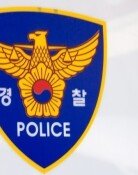National interest must be top priority
National interest must be top priority
Posted March. 17, 2015 07:19,
With Chinese Assistant Foreign Minister Liu Jianchaos visit to Korea, discussions between Korea-China and Korea-U.S. enter into an official state over the deployment of Terminal High-Altitude Area Defense (THAAD) system in Korea and Koreas joining in the Asian Infrastructure Investment Bank. Assistant Minister Liu met with Seouls Deputy Minister for Foreign Affairs Lee Kyung-soo and requested, We hope that the U.S. and South Korea will make an appropriate decision over the potential deployment of THAAD, respecting Beijings attention and concerns. On the AIIB, Liu mentioned the time frame for Korea to join the bank as a founding member, which is by the end of March, saying, I wish Korea positively review the matter and become the founding member.
Chinas stance to urge Korea to join the AIIB and object to the deployment of THAAD in Korea may put pressure on Korea to make a decision as Korea is thinking between THAAD and AIIB, respectively led by the U.S. and China. At the meeting between U.S. Assistant Secretary for East Asian and Pacific Affairs Daniel Russel and Deputy Foreign Minister Lee on Tuesday, it has become inevitable to discuss THAAD and AIIB. To make a proper decision over THAAD and AIIB, a strategic decision is required not just for Korea-U.S. alliance or Korea-China relations, but also for the dynamically changing situation in the Northeast Asia region. Given the necessity from the perspective of an independent nation, the answer is clear. As Foreign Minister Yoon Byung-se said in an interview with the Dong-a Ilbo on Saturday, the best decision would be "the decision made according to the nations interest, not being swayed by neighboring countries.
The U.S. opposes to its allies participation in the AIIB, which aims to build social infrastructures in Asian developing nations, raising issues of Chinas dominant governance in the bank. However, the situation has taken a sudden turn as the U.K. decided to join the organization and Australia changed its position to join. If Korea does not join the bank as a founding member and joins later, Korea would be at disadvantage when it comes to its share in the invested fund and voting right, being left aside as a "minor member." In addition, Korea needs to think about "preparation for unification" to support building infrastructure in North Korea through the AIIB.
THAAD deployment in South Korea is being discussed as a method to defend against North Koreas nuclear and missile threats. It would be an exaggeration if interpreting THAAD as a strategy of the U.S. to check Chinas expansion. Korea needs to present its role and have a negotiation with China to decide whether or not to join the AIIB. While taking a passive attitude to strike a balance between the U.S. and China, Korea might strain the relation with one side. We must be cautious not to allow such a zero-some game to happen. Koreas diplomacy is now on the test bed, to test whether it is capable of pursuing the nation`s interest by persuading the U.S. and China.
Headline News
- Med professors announce intention to leave hospitals starting Thursday
- Bridge honoring Sgt. Moon Jae-sik unveiled in Pennsylvania
- Chief of Staff Chung tells presidential secretaries to stay away from politics
- US FTC bans noncompete agreements
- N. Korea launches cyberattacks on S. Korea's defense companies







